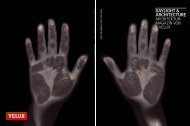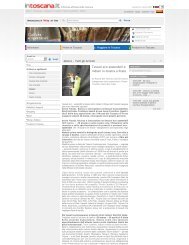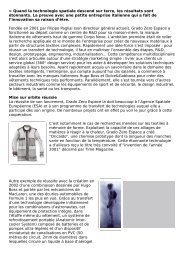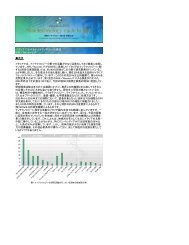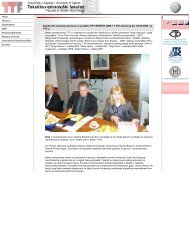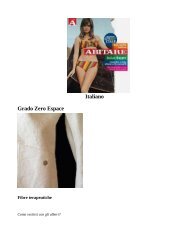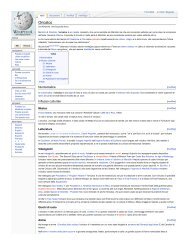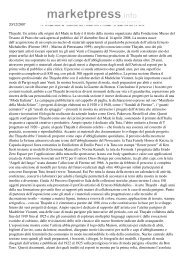Performance Apparel Markets - Grado Zero Espace Srl
Performance Apparel Markets - Grado Zero Espace Srl
Performance Apparel Markets - Grado Zero Espace Srl
You also want an ePaper? Increase the reach of your titles
YUMPU automatically turns print PDFs into web optimized ePapers that Google loves.
<strong>Performance</strong> <strong>Apparel</strong> <strong>Markets</strong>, 1st quarter 2006<br />
Business update<br />
Some materials may melt<br />
and stick to the skin and<br />
cause terrible burns<br />
Melted synthetic material<br />
on top of a burn makes the<br />
burn much worse<br />
In one case, burn injuries<br />
covering 70% of the body<br />
were made worse by the<br />
melting of a polyester shirt<br />
on to the victim’s skin<br />
The new ban extends an<br />
existing one on polyester<br />
materials for service<br />
personnel who are at high<br />
risk of exposure to flames<br />
This concern addresses<br />
problems caused by the<br />
Marines’ own clothing<br />
Some firms are working to<br />
make safer under-garments<br />
Clothing made from synthetic materials—such as that produced by<br />
Nike and Under Armour—may, when exposed to extreme heat and<br />
flames, melt and stick to the skin and cause terrible burns.<br />
A Marines’ surgeon explained: “If you’re throwing [a melted synthetic<br />
material] on top of a burn, basically you have a bad burn with a<br />
bunch of plastic melting into your skin”.<br />
According to a report on www.military.com, an incident in which a<br />
Marine suffered from burn injuries covering 70% of his body was<br />
made worse by the melting of his polyester shirt on to his skin. The<br />
injury occurred despite the fact that he was wearing a protective vest<br />
over the shirt.<br />
A ban on polyester materials is already in place for service personnel<br />
who have jobs which put them at high risk of exposure to flames.<br />
However, the Marines have now extended this ban to all personnel on<br />
operations because of the heightened risk of improvised explosive<br />
devices in Iraq.<br />
While there are ranges of synthetic clothing already designed and used<br />
by the military, this particular concern addresses problems caused<br />
when Marines wear their own (non-issue) clothing.<br />
Some apparel companies are already working with the military to<br />
produce under-garments which are safer.<br />
MERGERS, ACQUISITIONS AND DIVESTMENTS<br />
Russell is to be acquired<br />
for US$598.3 mn by<br />
Berkshire Hathaway<br />
The acquisition is expected<br />
to be finalised during the<br />
third quarter of 2006<br />
The chairman and CEO<br />
says Russell will be better<br />
positioned against its<br />
worldwide competitors<br />
RUSSELL CORPORATION AND BERKSHIRE HATHAWAY<br />
USA-based Russell Corporation, a manufacturer of athletic wear, is to<br />
be acquired for US$598.3 mn by Berkshire Hathaway—a USA-based<br />
diversified insurance and investment company led by billionaire<br />
Warren Buffett.<br />
The acquisition is expected to be finalised during the third quarter of<br />
2006, subject to shareholder and regulatory approval. Under the terms<br />
of the agreement, Russell shareholders will receive US$18 cash per<br />
share.<br />
The chairman and chief executive officer of Russell, Jack Ward, has<br />
said of the acquisition: “Russell will be better positioned against our<br />
worldwide competitors in all three segments of our business and that<br />
includes apparel, sports equipment and athletic shoes”.<br />
64 © Textiles Intelligence Limited



